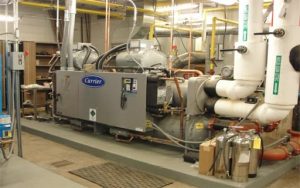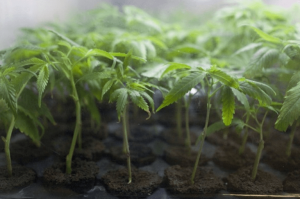Common Mistakes Made by New Cannabis Cultivation Projects
The number of licensed cannabis cultivation facilities across North America is exploding, and industry newbies must find trustworthy and experienced advisors to help them get started without making a lot of costly mistakes along the way. This can be challenging with so many contractors and equipment companies bombarding us with sales pitches that all sound amazing.
What turns out to be the case is that consistently producing good cannabis flower is not all that easy. Building and implementing an indoor cultivation system comes with many potential pitfalls that can occur in both the design and implementation processes. Successfully simulating nature in a building and preventing all mechanical systems from ever faltering at the expense of plant health is quite a challenge. It requires mechanical sophistication, plant sense, efficient workflow management and strategic planning all along the way.
In visiting dozens of licensed marijuana production facilities over the past 5 years, I have seen some consistent problems and errors that I’d like to share, to perhaps save new projects from making the same mistakes:
Insufficient Investment in Mechanical Systems
 Many project leaders have made the mistake of trusting basement-level growers or HVAC companies with no cannabis facility experience to design and size their systems. The wrong AC and dehumidification specs will ruin a cultivation facility before it starts. The equipment companies who can succeed at designing and installing these kinds of systems will have experience in cannabis facility design, or in some similar situation, such as data center management, indoor swimming pools, or food storage and refrigeration
Many project leaders have made the mistake of trusting basement-level growers or HVAC companies with no cannabis facility experience to design and size their systems. The wrong AC and dehumidification specs will ruin a cultivation facility before it starts. The equipment companies who can succeed at designing and installing these kinds of systems will have experience in cannabis facility design, or in some similar situation, such as data center management, indoor swimming pools, or food storage and refrigeration
Sometimes even when the right systems have been chosen, the budget isn’t provided for backup power and mechanical redundancy, which means a single AC failure (which is a “when” and not an “if”) means a significant financial loss and scheduling setback for the project.
Starting from infected clones
Let me be clear: All cannabis flower producers have a very high chance of getting a microbial or insect infection from incoming clones. To underscore that point, I can confidently say that I’ve never encountered a flower facility that’s been open for more than 2 years that hasn’t suffered some kind of clone-sourced pernicious plant infection. And when this happens, the quality and profitability of the project take a significant nose dive.
 The incentive to start with clones is understandable — it saves time over starting from seed and gives you the strains and genetics that are already proven in the market — but until we have large-scale tissue culture labs providing guaranteed clean starter-plant stock, new cultivation facilities should seriously consider starting from seed and finding the phenotypes among those seeds from which to create their genetic library. A cultivation consultant can help make the right seed purchase choices to ensure sale-ability of the finished product. The investors just need to be patient about recouping costs while this process plays out, which adds about 6 months to the calendar on ROI.
The incentive to start with clones is understandable — it saves time over starting from seed and gives you the strains and genetics that are already proven in the market — but until we have large-scale tissue culture labs providing guaranteed clean starter-plant stock, new cultivation facilities should seriously consider starting from seed and finding the phenotypes among those seeds from which to create their genetic library. A cultivation consultant can help make the right seed purchase choices to ensure sale-ability of the finished product. The investors just need to be patient about recouping costs while this process plays out, which adds about 6 months to the calendar on ROI.
Trusting the wrong people
Who isn’t susceptible to a great sales pitch? I’ve fallen for them many times myself in the past when it comes to equipment providers, and I see my clients and potential clients doing the same thing all over again. When an entrepreneur is developing business plans, the sales reps at equipment companies are an easy source of detailed information. The problem is that sales reps are fundamentally biased towards their product and thus paint a rosy picture of it in relation to alternatives. Aeroponics is a great example of this. These systems are very cool looking and have great theory behind them, yet they are expensive, complicated, and fraught with potential failure points. New investors easily fall for them, not realizing that there are many simpler, far more reliable cultivation systems to choose from.
 Finding trustworthy, accountable experts for reliable project guidance is also a challenge in this industry. I don’t believe I’ve ever seen so many unqualified people refer to themselves as consultants as I’ve seen in the cannabis world. People who might have worked for or operated a small illegal grow operation are putting themselves out there as experts, and sometimes they present a very convincing front that turns out to lack real substance. Being a good judge of character is almost the most important of skills to have if you are going into this business.
Finding trustworthy, accountable experts for reliable project guidance is also a challenge in this industry. I don’t believe I’ve ever seen so many unqualified people refer to themselves as consultants as I’ve seen in the cannabis world. People who might have worked for or operated a small illegal grow operation are putting themselves out there as experts, and sometimes they present a very convincing front that turns out to lack real substance. Being a good judge of character is almost the most important of skills to have if you are going into this business.
Keep in mind that the cannabis industry, so far, is still a pretty small world. That makes it easy to vet everyone you hire by asking around, and also to find growers who have used various systems and products so you can get more unbiased feedback before you purchase core equipment.
Summary
Understand and budget for the mechanical engineering part of your project, which is mainly oriented around environmental controls.
Start from seed or Tissue Culture Clones
When choosing products and experts, ask a lot of questions, get references and find other growers who have used the systems you are thinking of using. Choose trustworthy, accountable consultants who have already made all of the mistakes so you don’t have to.
